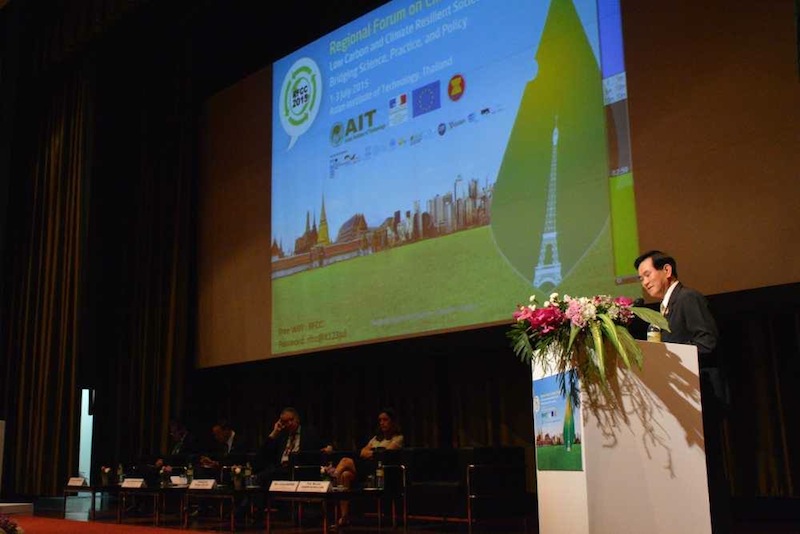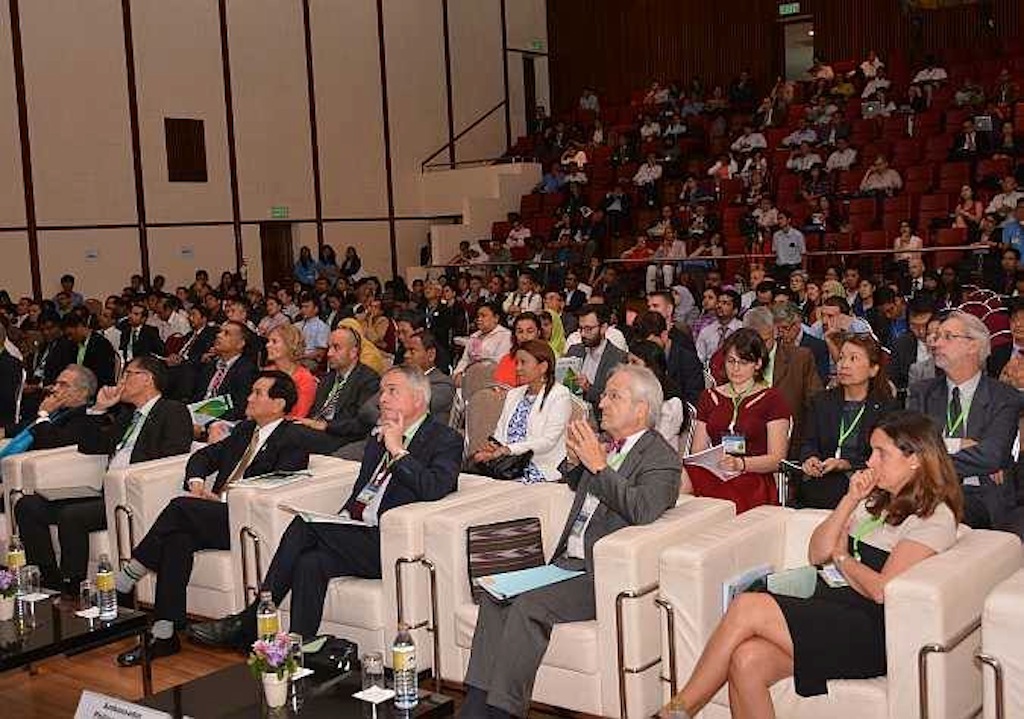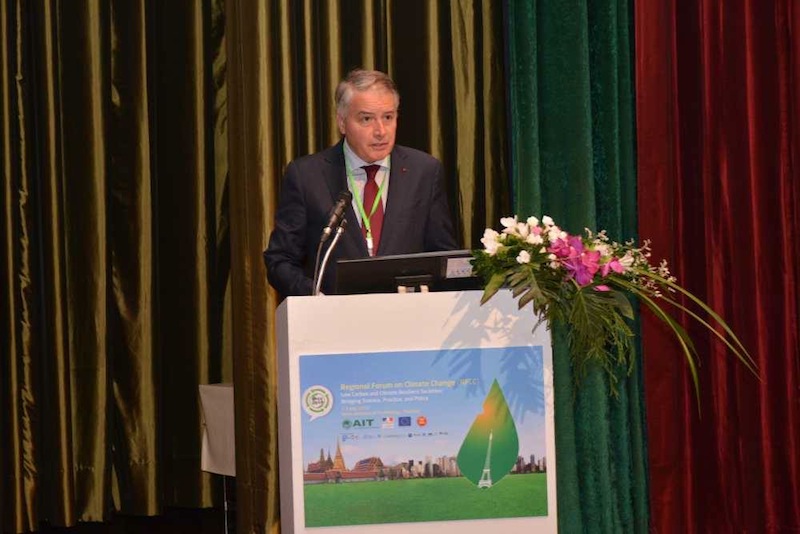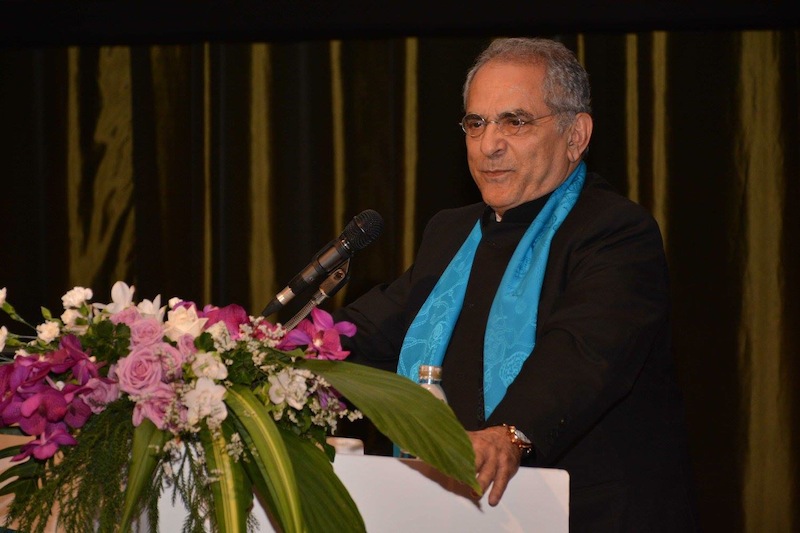Shaira Panela and Anna Valmero
BANGKOK, Thailand–Solutions to the challenges of a warming planet and the environment must build on clear scientific findings in order to be sustainable, achieve a low-carbon economy and climate resilient societies, Asian climate experts said at the Regional Forum on Climate Change here.
Zakri Abdul Hamid, Science Advisor to the Prime Minister of Malaysia told the more than 400 scientists, climate experts and decision-makers that the success of a new climate change deal in Paris in December this year requires a strong scientific foundation that is understood by policymakers.
“ Science have a key role in the climate change debate as it influence policy in the highest level and push them to act. Evidence-based science advice is essential,” Hamid said during his speech.
In preparation to the climate change summit in Paris in December where negotiation on limits to greenhouse gas emissions will happen, the forum offers an opportunity for countries which are members of the Association of Southeast Asian nations (ASEAN) to exchange on climate action needed for the years to come, to put existing knowledge into practice and policy and build networks from the research community, policymakers and the civil society groups.
Climate change threatens sustainable development
Hamid said that “climate change is also a threat to sustainable development” and that there is a need to sharpen scientific understanding and presentation to make informed decisions that improve people’s lives.
Hamid referred to the Intergovernmental Panel on Climate Change (IPCC) Fifth Assessment Report (AR5) released last year on the most comprehensive scientific findings on the socio-economic aspects of climate change and its implications for sustainable. He emphasized the summary of the works of hundreds of experts that is a valuable resource for policymakers as the world prepares to finalize a global deal on climate change this year.
Sectors assessed for specific effects under the IPCC’s latest report included resources, terrestrial and ocean ecosystems, coasts, food, urban and rural areas, energy and industry, human health and security, and livelihoods and poverty.
“ Credibility, relevance and legitimacy are the elements needed to convince policymakers to address climate change seriously,” Hamid told the forum which was organized by the Asian Institute of Technology in Thailand and the French Ministry of Foreign Affairs and International Development, the ASEAN and the European Union.
Meanwhile, Fredolin Tangang, vice-chair of the IPCC Working Group 1 told the participants that based on their report, temperature in the Southeast Asian region is projected to go up to 3 to 5 degrees Celsius by the end of the century while the worst case scenario is for the world to heat up to 11 degrees Celsius.
“What we have today is certainly beyond the natural fluctuations of carbon dioxide (CO2),” he said. Among the primary drivers for carbon emissions is energy production, Tangang added.
To limit the warming of the Earth to below 2 degrees, it requires a combination of adaptation, mitigation and risk reduction measures and policies, he stressed.
Tangang added that human influence on climate change is clear and that the choices we make will create different outcomes.
“COP21 will have a huge impact on humanity,” he said as he hopes for a tangible outcome, something that is binding for all countries after the climate change talks in December.
Changing climate is a security issue, too
Climate change has serious security implications, especially for developing countries that are more vulnerable to impacts of a global rise in temperature and development setbacks, former Timor-Leste President Jose Ramos-Horta said during his speech at the forum.
“After Lima, we need a legal outcome with legal force. Climate change makes nations more vulnerable. It can increase competition for scarce resources that can potentially lead to conflict,” said Horta, also a Nobel Peace Laureate winner.
Sustainable development or development in general will remain elusive in a business-as-usual scenario because disasters undermine progress especially in small island states that suffer significant losses as seen from typhoons in recent years.
Key to this is the need to ensure support from funding mechanisms such as the Green Climate Fund and mainstreaming climate change through increased education and awareness campaigns to boost participation from policy makers and the public.
“While rich countries are seen as the only funding source, emerging countries now acknowledge they have become major carbon emitter as well and realize their important role in the process,” Horta added.
photo credit: Asian Institute of Technology (AIT-RFCC)
Latest posts by EnviroNewsph (see all)
- Global fund aimed at protecting nature and accelerate investment in conservation, launched in Canada - August 25, 2023
- Why ‘loss and damage’ is the most bitterly fought-over issue at COP27 climate talks? - November 18, 2022
- U.S. hands over P2.3M in equipment and wildALERT system to PH to protect wildlife - December 16, 2020




